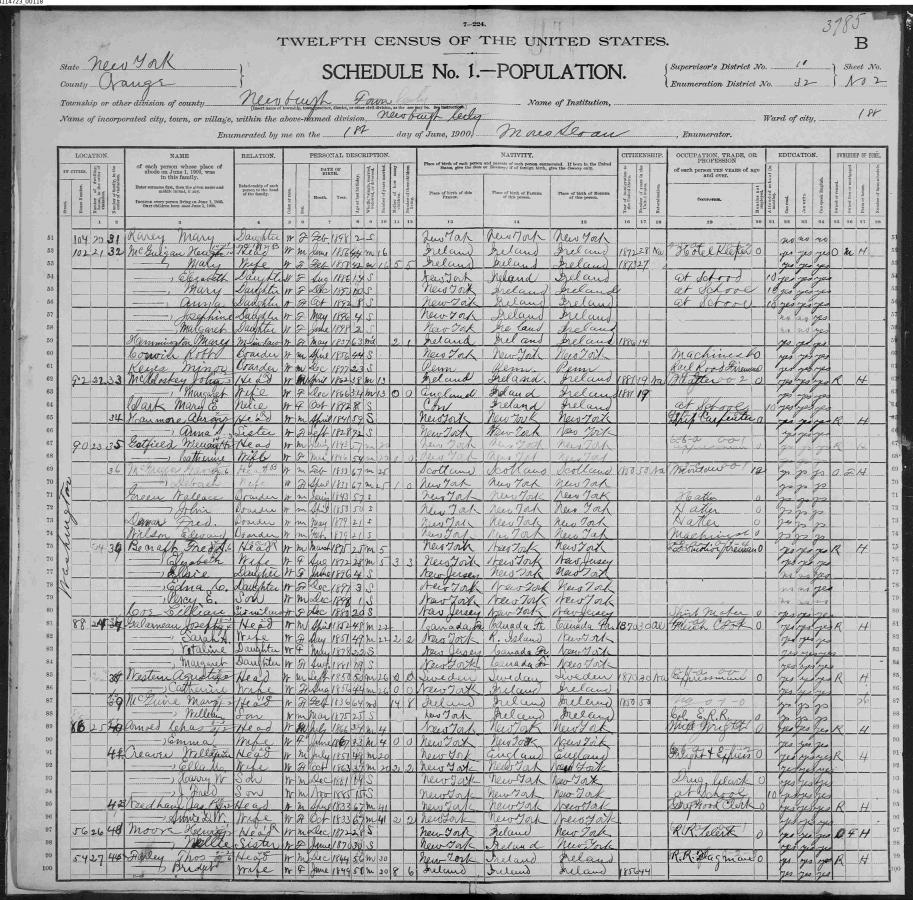
Many of us have, lurking in our family bush, an ancestor or a relative with an unusual name. More often than not, this is a very good thing because it allows that person to stand out from the dense thicket of more ‘normal’ names. Tracing such people is usually a gateway to finding more on the wider family because the path is that much clearer. The story below is one of those cases – but with a twist: it is an unusual name ‘in reverse’.
In late January 2018, an American lady [we’ll call her Amanda] called in to the Irish Family History Centre (IFHC) [CHQ Building, Dublin] armed with some documents to do some research using our computers and to buy our research pack for home use. She paid the €12.50, and I set her up with five databases to explore, saying that if she needed a bit of help I was on hand.
About 25 minutes later I got a call over. Amanda was seriously stuck. No progress was being made. Her notes showed that there was a key ancestor in New York who absolutely had to be found, but for the life of her she could not find him – with one exception: he was on the 1900 US census. His name was Neugle McGuigan.

‘Neugle’ is not your everyday first name. Maybe there had been a transcription error, or possibly a case of enumerator error. So, I asked Amanda to pull up the actual census record so I could see the name, as written, for myself.

It did indeed look like ‘Neugle’, but I noticed that the enumerator’s handwriting was a bit on the florid side. So, I did a handwriting comparison test, looking for other names on the page with the same starting squiggle. And got very excited … ”It’s a ‘H’!”, I squeaked, followed seconds later with “It’s ‘Hugh’ … it’s not ‘Neugle’, it’s ‘Hugh’!” Beams of smiles.
The brick wall had been demolished. Now that Amanda knew it was ‘Hugh’ she could find the family on other censuses. She noticed that Hugh had become a naturalized American citizen, which would lead to potentially invaluable naturalization papers; she could now track when he immigrated to the US; she could also hunt for his marriage certificate and then the birth certificates for his children [also revealing his wife’s full, and correct, name – something the census had also mangled]; and from all that there would now be a real chance of tracing the family back in Ireland. It was a truly massive moment for Amanda.
‘Hugh McGuigan’ is not an unusual name, but it was that information that cracked Amanda’s case wide open. As Amanda left the IFHC I shook her hand, and we both almost simultaneously made the same pun … “That was a ‘Hugh’ge breakthrough!”
By Patrick Roycroft
